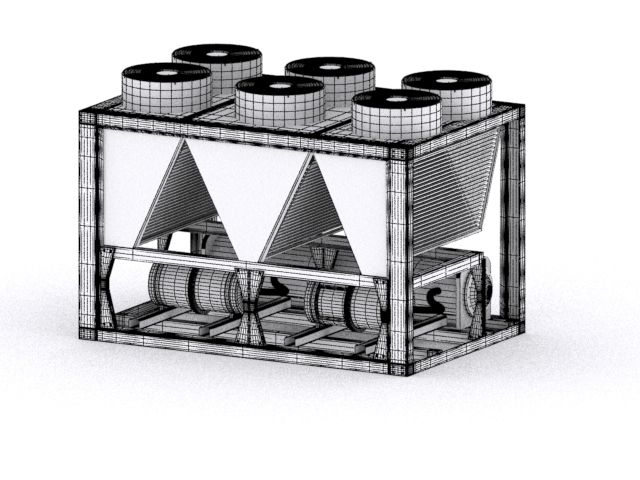Choosing an Industrial Chiller
Industrial Chiller
Cooling Engineer
9/1/20252 min read


Choosing an Industrial Chiller: A Complete Guide
Industrial chillers play a vital role in a wide range of applications, from plastic manufacturing and food processing to pharmaceuticals and HVAC systems. Selecting the right industrial chiller is crucial not only for operational efficiency but also for energy savings and equipment longevity. With numerous types and specifications available, making the right choice requires a clear understanding of your application needs and system requirements.
In this guide, we’ll explore the key factors to consider when choosing an industrial chiller, the different types available, and tips to ensure optimal performance.
What Is an Industrial Chiller?
An industrial chiller is a cooling system that removes heat from a process or equipment and transfers it to the environment using water or air. It’s an essential component in industries where temperature control is critical to maintain product quality, prevent equipment overheating, and ensure consistent performance.
Types of Industrial Chillers
Before choosing a chiller, it's important to understand the different types available:
1. Air-Cooled Chillers
Use ambient air to dissipate heat.
Suitable for outdoor installations.
Lower installation cost but can be less efficient in hot climates.
2. Water-Cooled Chillers
Use water and a cooling tower to remove heat.
More energy-efficient, especially in large-scale operations.
Requires additional components like a cooling tower and water treatment system.
3. Absorption Chillers
Use a heat source (like steam or hot water) instead of electricity.
Ideal for facilities with waste heat or cogeneration systems.
Higher initial cost but beneficial for energy integration.
Key Factors to Consider When Choosing a Chiller
1. Cooling Capacity
Measured in kW or BTU/hr, this determines how much heat the chiller can remove.
Accurately calculate the cooling load based on your process requirements.
2. Temperature Requirements
Consider both the required inlet and outlet temperatures of your application.
Ensure the chiller can operate effectively at the desired temperature range.
3. Ambient Conditions
Outdoor temperature and humidity affect chiller efficiency, especially for air-cooled systems.
Choose a chiller designed to operate within your local climate.
4. Energy Efficiency
Look for high COP (Coefficient of Performance) and EER (Energy Efficiency Ratio) ratings.
Variable speed compressors and intelligent control systems can enhance efficiency.
5. Footprint and Installation Area
Evaluate the space available for installation.
Consider noise levels, ventilation needs, and access for maintenance.
6. Water Quality and Availability
For water-cooled systems, ensure access to clean water and consider treatment to prevent scaling and corrosion.
7. Maintenance Requirements
Opt for models with easy-access panels, diagnostic controls, and reliable service support.
8. Cost of Ownership
Beyond the initial purchase price, factor in energy consumption, maintenance, water use, and expected lifespan.
Additional Features to Look For
Remote Monitoring and Control – Enables easy management and diagnostics.
Integrated Pump Packages – Simplify installation.
Redundancy Options – Ensure uninterrupted operation during maintenance or failure.
Common Industrial Applications
Plastic Injection Molding
Chemical Processing
Metal Finishing
Food and Beverage Production
Medical Equipment Cooling
Brewery and Distillery Operations
Concrete Cooling Systems
Final Thoughts
Choosing the right industrial chiller is a strategic decision that affects your facility’s productivity, operational costs, and sustainability. A thorough assessment of your cooling needs, environmental conditions, and long-term operational goals is essential.
Partnering with a reputable chiller manufacturer or HVAC consultant can further simplify the selection process, ensuring you get a system that matches your unique requirements.
Need help selecting a chiller for your facility? Consult our industrial cooling expert to get a customized solution tailored to your needs.
Contact
Evanso Factory:
Atatürk Sanayi Sitesi
Yedi Eylül Mahallesi 5544 Sk. No:46 Torbalı İzmir
